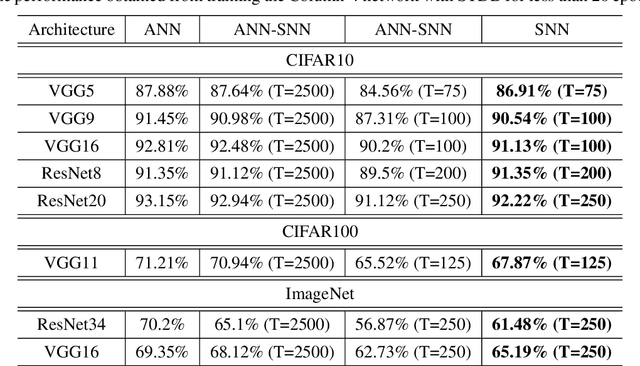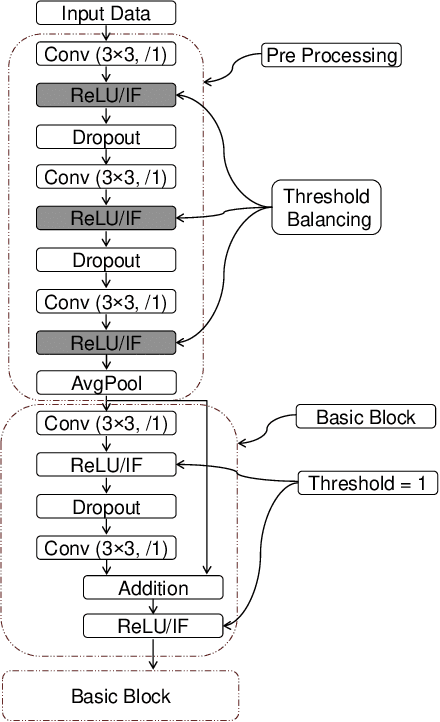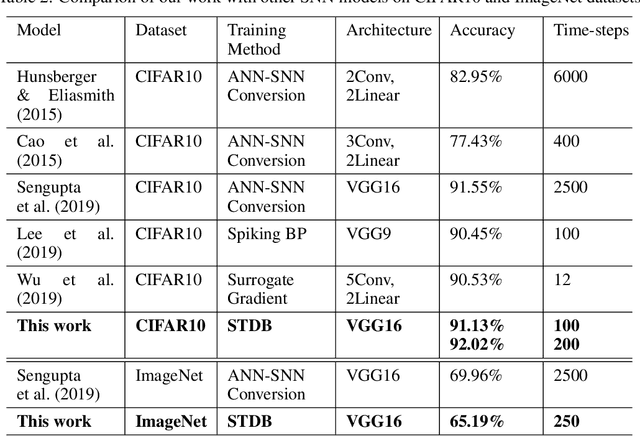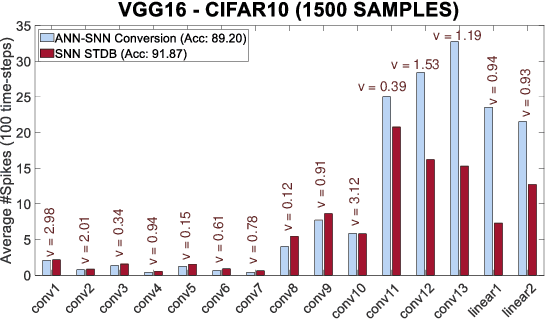Enabling Deep Spiking Neural Networks with Hybrid Conversion and Spike Timing Dependent Backpropagation
Paper and Code
May 04, 2020



Spiking Neural Networks (SNNs) operate with asynchronous discrete events (or spikes) which can potentially lead to higher energy-efficiency in neuromorphic hardware implementations. Many works have shown that an SNN for inference can be formed by copying the weights from a trained Artificial Neural Network (ANN) and setting the firing threshold for each layer as the maximum input received in that layer. These type of converted SNNs require a large number of time steps to achieve competitive accuracy which diminishes the energy savings. The number of time steps can be reduced by training SNNs with spike-based backpropagation from scratch, but that is computationally expensive and slow. To address these challenges, we present a computationally-efficient training technique for deep SNNs. We propose a hybrid training methodology: 1) take a converted SNN and use its weights and thresholds as an initialization step for spike-based backpropagation, and 2) perform incremental spike-timing dependent backpropagation (STDB) on this carefully initialized network to obtain an SNN that converges within few epochs and requires fewer time steps for input processing. STDB is performed with a novel surrogate gradient function defined using neuron's spike time. The proposed training methodology converges in less than 20 epochs of spike-based backpropagation for most standard image classification datasets, thereby greatly reducing the training complexity compared to training SNNs from scratch. We perform experiments on CIFAR-10, CIFAR-100, and ImageNet datasets for both VGG and ResNet architectures. We achieve top-1 accuracy of 65.19% for ImageNet dataset on SNN with 250 time steps, which is 10X faster compared to converted SNNs with similar accuracy.
 Add to Chrome
Add to Chrome Add to Firefox
Add to Firefox Add to Edge
Add to Edge